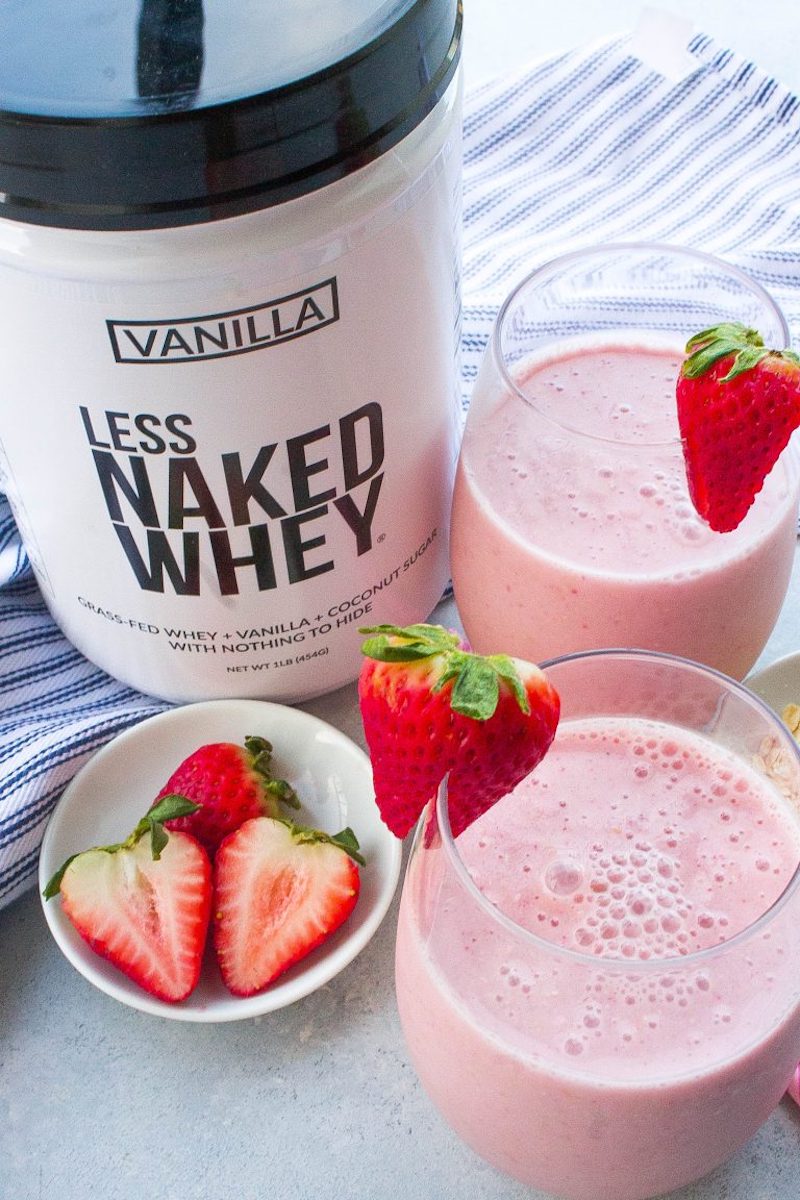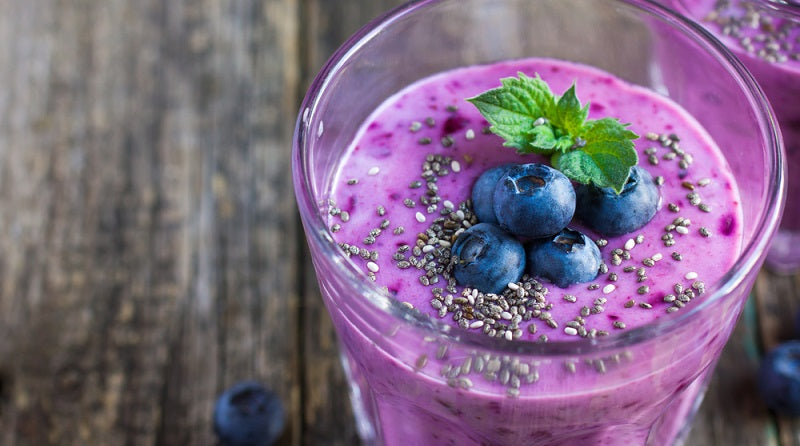
One of three macronutrients, protein plays a major role in the structure and function of our tissues and organs. Not only that, but it’s ability to boost metabolism, reduce appetite, and change weight-regulating hormones can be beneficial if you’re seeking weight loss.
Protein shakes can be a simple and convenient way to reach your daily protein needs. All it takes is your beverage of choice, protein powder, and a quick shake to mix it all up.
Protein powder isn’t one size fits all either. There are various types of protein sources and certain times of day where it can benefit you and your weight loss goals most.
The Science Behind Protein and Weight Loss

It’s easy to say that protein does x, y, and z – but diving into details makes it even more credible. Here are some big roles protein plays when it comes to weight loss.
Weight regulating hormones
There’s an area in your brain called the hypothalamus which determines when and how much to eat. When you eat, different hormones come into play. These include:
- Leptin – sometimes called the “satiety hormone” because it curbs hunger and makes sure the body doesn’t trigger hunger responses when it does not need the additional energy
- Ghrelin – called the “hunger hormone” due to its role in stimulating appetite, it causes individuals to digest more food and store more fat
- Peptide YY – slows down the movement of food in the digestive tract and tells your brain you are full which decreases your appetite
- Glucagon-like peptide 1 (GLP-1) – regulates your appetite and helps you feel full during and between meals
- Cholecystokinin (CCK) – produced in the small intestine and reduces the rate at which food empties from the stomach; increases sensation of short-term fullness
When you eat high amounts of protein, your CCK, peptide YY, and GLP-1 hormones increase which makes you feel more satiated. It also reduces your body’s level of ghrelin (the hormone that makes you feel hungry).
This can reduce hunger and results in fewer calories consumed.
Boosts metabolism
There’s this little this called the thermic effect of food (TEF). This is the energy that is required for digestion, absorption, and disposal of ingested nutrients. When it comes to TEF, not all foods are the same.
Protein has a higher thermic effect than fat or carbs, at about 15% to 30% of the energy consumed (the rest is burned while the body is metabolizing it). This helps boost metabolism and increases the number of calories that are being burned.
Build muscle and prevent muscle loss

When you consume protein, you’re assisting your body in building your muscles. Many studies (including this one from 2015) show that eating sufficient amounts of protein increase muscle mass and strength.
Calorie restriction goes hand in hand with weight loss. Ensuring that you consume adequate amounts of protein can prevent muscle loss when losing weight, according to a 2014 study.
A clean grass-fed whey like Naked Whey is absorbed better by your body and has been shown to increase strength and gain muscle.
Don’t Forget Exercise
Combining both protein and exercise can be the boost you’re looking for when it comes to weight loss. A 2017 study investigated whether high protein diets and/or resistance training preserves fat-free mass (aka lean body mass that includes everything except fat) during weight loss in overweight and obese individuals.
The results concluded that no changes in fat-free mass occurred in the groups that were in the high protein group or normal protein group with or without resistance training 3 times per week.
On the other hand, combining both a high protein diet and resistance exercise significantly increased fat-free mass.
When should I drink protein shakes?

The timing of protein intake is all dependent on what your end goals are.
For weight loss
Studies have found that having protein-rich foods or beverages between meals can help reduce appetite and result in fewer calories consumed later on.
For example, one 2014 study found that individuals eating high-protein yogurt as an afternoon snack ate 100 fewer calories at dinner. This was compared to individuals eating lower protein options at the same number of calories.
For exercise recovery
If you’re looking to recover from exercise, timing isn’t a huge factor unlike ensuring you’re meeting your protein needs. The International Society of Sports Nutrition (ISSN) states that building and maintaining muscle mass requires an overall daily protein intake within the range of 1.4 – 2.0 grams protein per kilogram of body weight each day.
However, they do mention that resistance exercises can benefit from taking protein either right before or immediately after a workout.
For overnight recovery and muscle building
A protein nightcap can benefit elderly individuals as well as those looking to build muscle, increase strength, and improve exercise performance and recovery.
A 2016 review of studies had the conclusion that taking protein before bed was effective in muscle building and helping your muscles adapt to exercise. This is because protein is effectively digested and absorbed before bed which increases the availability for your muscles to recover as you sleep.
Casein protein powder is the way to go if you plan on adding protein to your evenings. Our casein protein powder has one ingredient – micellar casein. This form of protein is digested slower compared to whey, allowing the body a steady stream of protein throughout the night.






